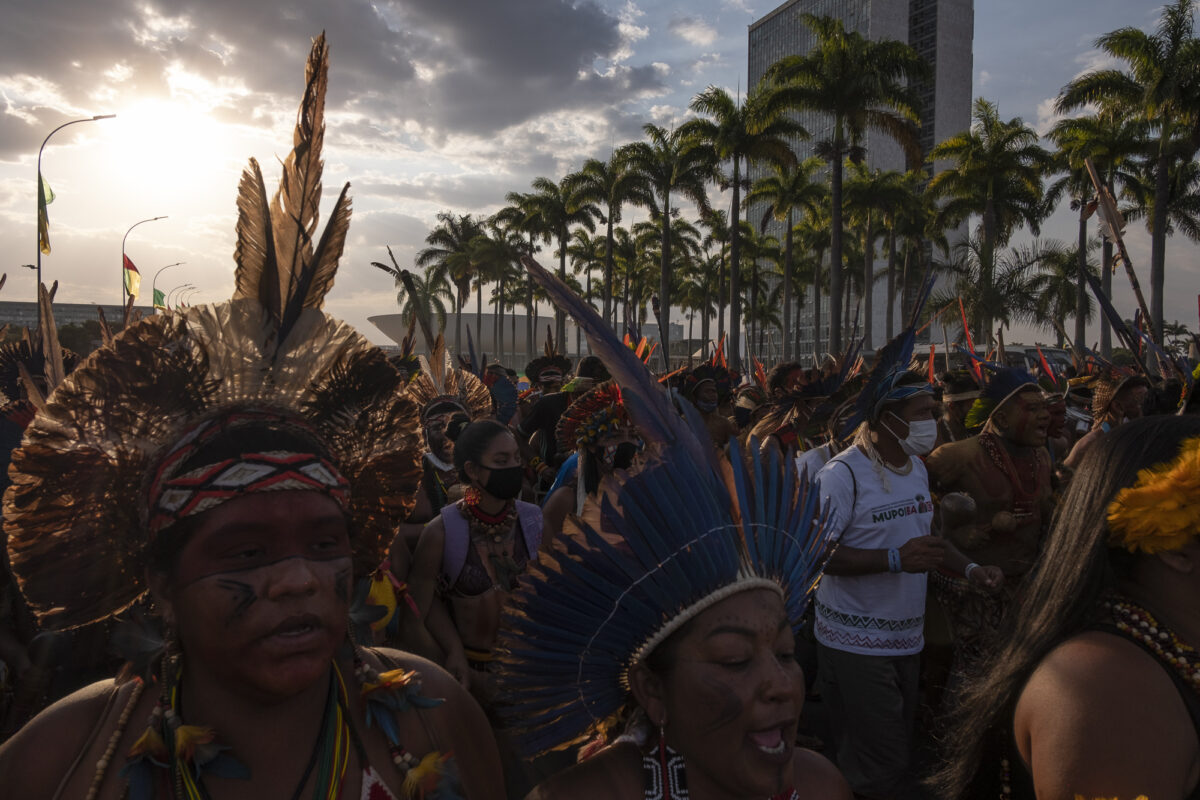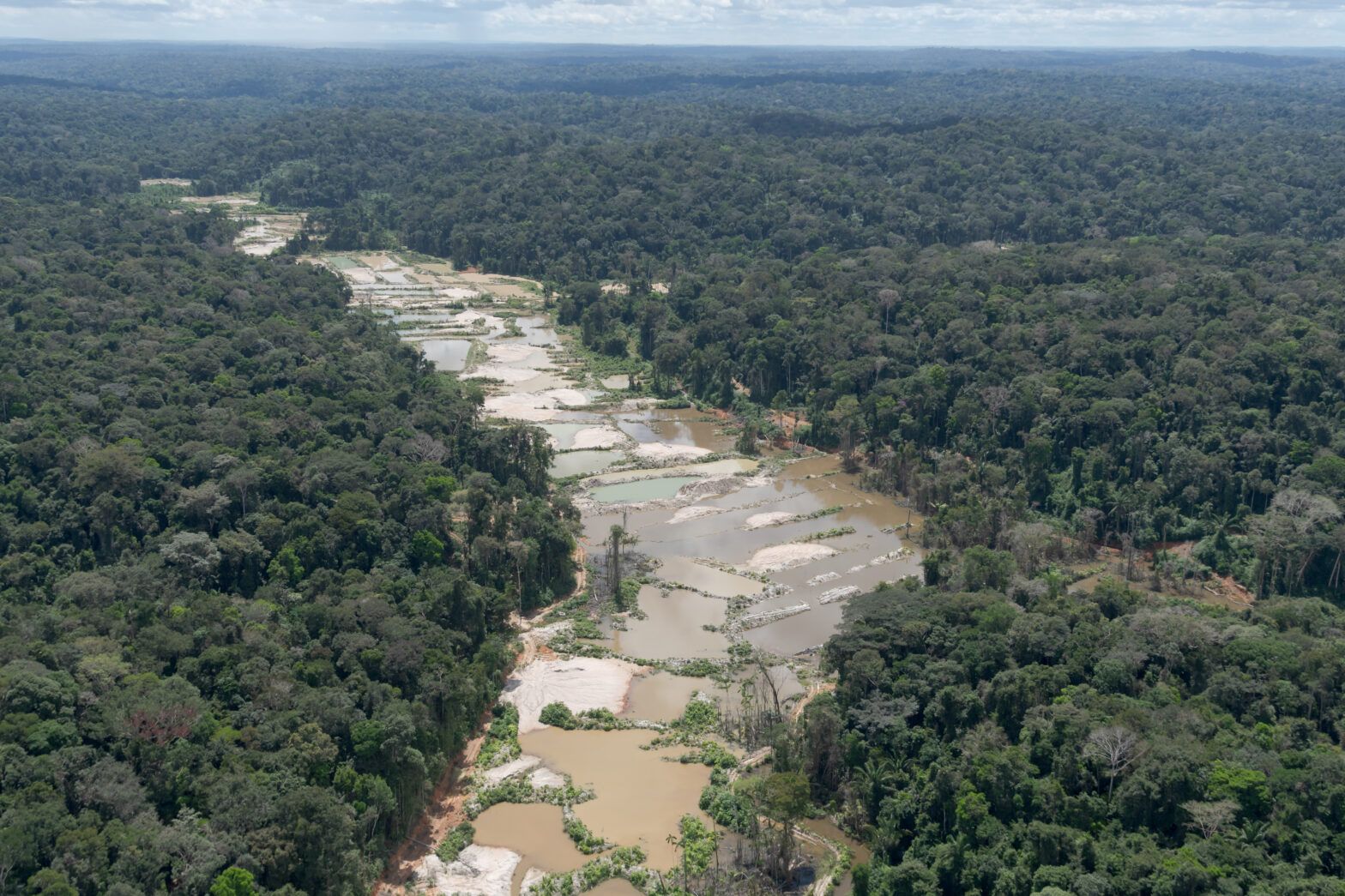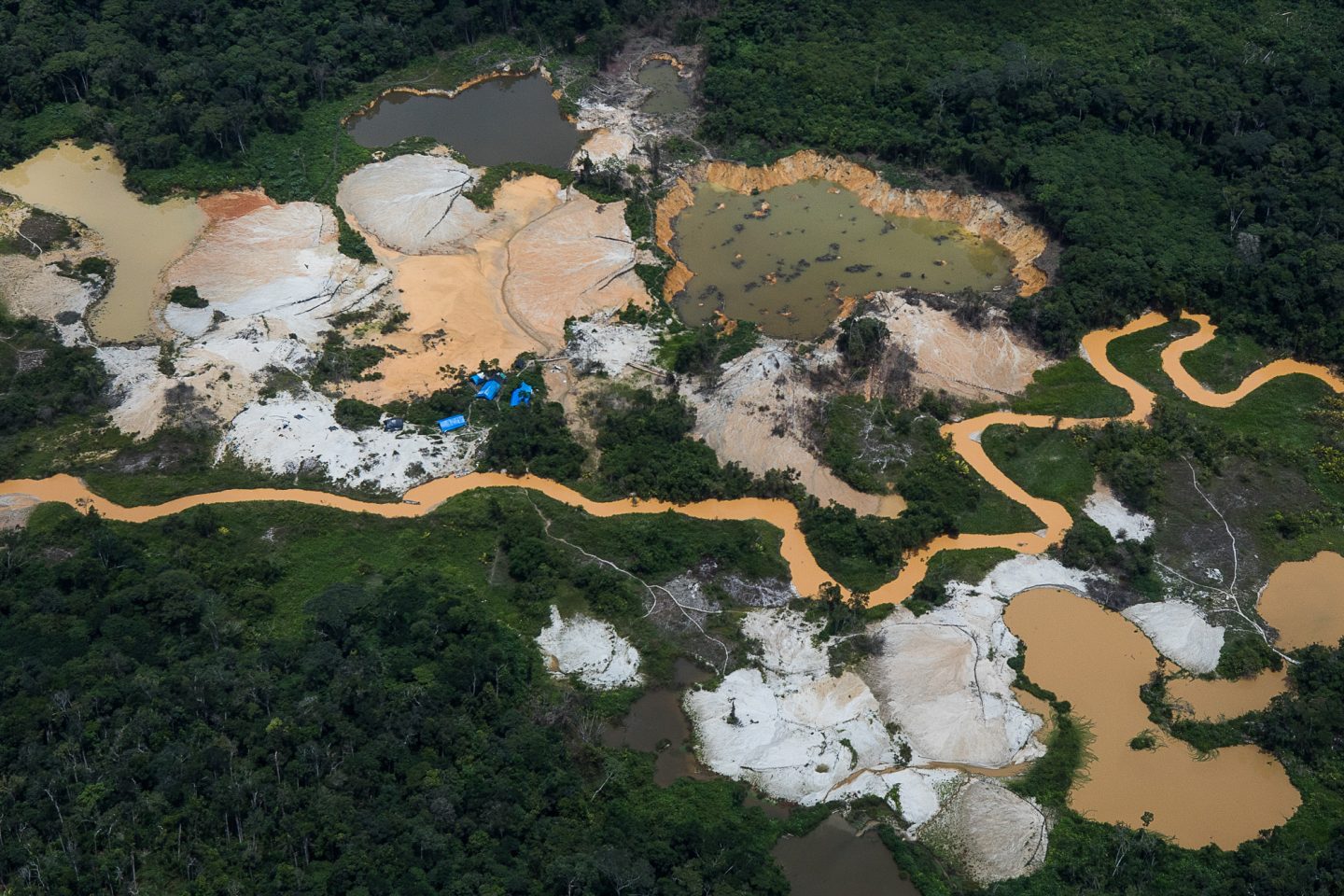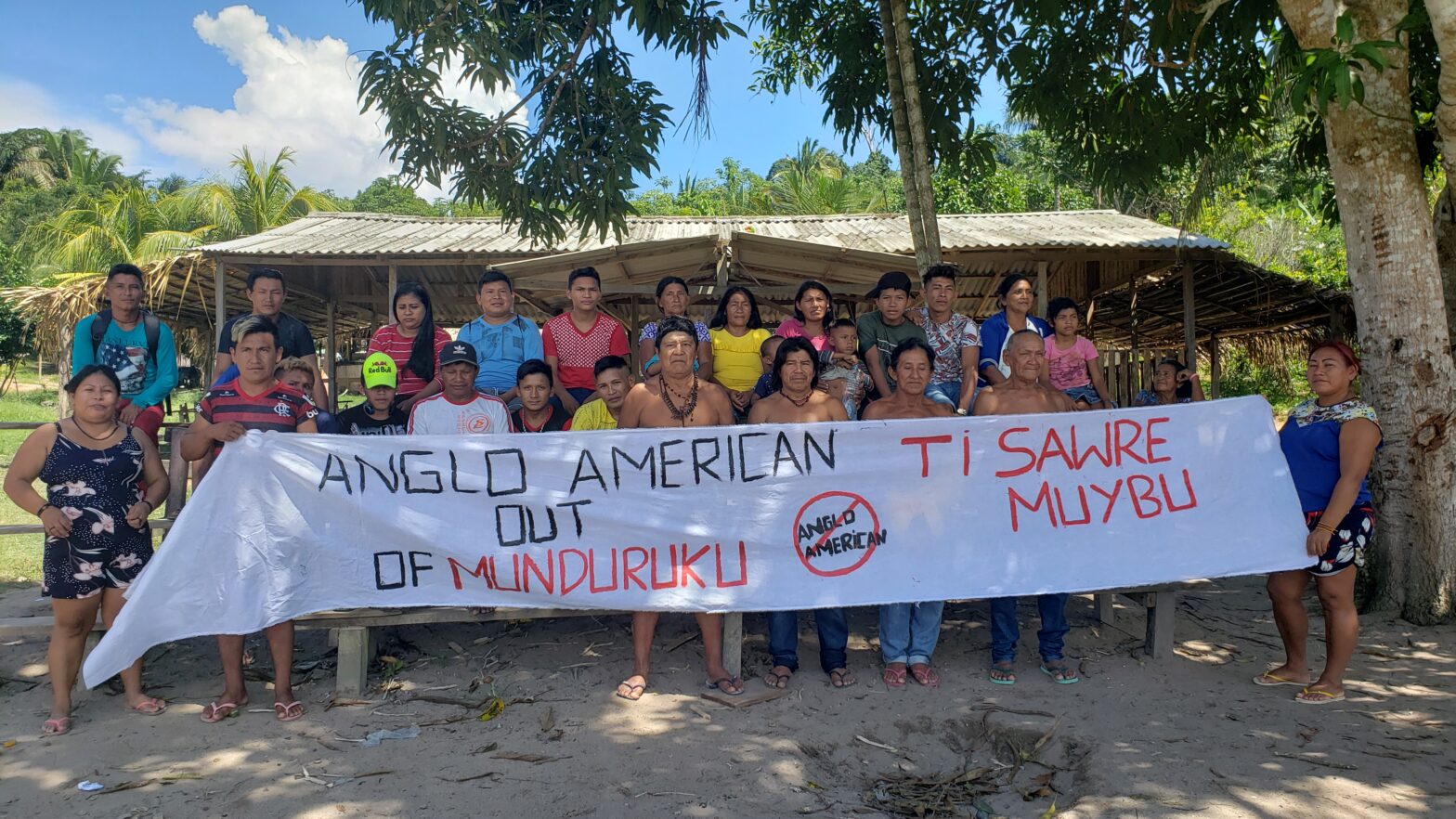Leaders defend that part of the resources should guarantee and maintain their territories. The way that carbon markets will work will be defined until the end of COP26.
Indigenous people hope that the 26th United Nations Conference on Climate Change will define how their role in preserving the Amazon will benefit from mechanisms such as the carbon market. The rules will be established at the meeting that ends on the 12th, in Glasgow (Scotland). Private and voluntary markets can be established, as well as means for exchanging emission credits between countries that are part of the 2015 Paris Agreement.
Brazil made new commitments to the treaty. Given the window of opportunity, indigenous leaders present at COP26 made an appeal, arguing that part of the resources that will finance the fight against the climate crisis be used to guarantee their rights. “Without indigenous peoples and territories, there is no way to face the climate crisis. Financial conditions derived from the conference should be used to demarcate territories and strengthen their protection and management. Countries need to consider this in their debates at COP26”, said Sônia Guajajara, executive coordinator of the Indigenous Peoples’ Movement of Brazil (APIB). The Global Alliance of Territorial Communities Manifesto states that indigenous peoples and local communities did not participate in the arrangements that earmarked $19.2 billion for forest protection this week in the Forest Deal.
Map shows Indigenous Lands of the Legal Amazon (outline in white), forest cover (in dark green), cattle breeding (yellow), and soy production (pink), according to land use data from MapBiomas. Move the slider to compare deforestation in 1985 (left) and 2020 (right).
Indigenous people are key to preserving the Amazon. According to MapBiomas, only 1.6% of the deforestation between 1985 and 2020 occurred in indigenous lands (TIs). In the country, there are 723 TIs that represent 14% (1,174,273 km²) of the national territory. About 98% of their area is in the Legal Amazon. Official data show the Amazon has lost 457,000 km² since 1988, when the National Institute for Space Research (INPE) began mapping it. The area is nearly twice the size of the United Kingdom.
Without indigenous peoples and territories, there is no way to face the climate crisis. Financial conditions derived from the conference should be used to demarcate territories and strengthen their protection and management.
Sônia Guajajara, from the Articulation of Indigenous Peoples of Brazil (APIB)
The global market for carbon credits emerged after the signing of the Kyoto Protocol in 1997. It set the initial rules for industrialized countries to offset their greenhouse gas emissions by buying credits generated by projects that cut and/or absorb pollutants in developing nations. But, after more than two decades, the mechanism became outdated and must be updated to the goals of the Paris Agreement, signed to keep the increase in the global average temperature below 2ºC.
In Brazil, indigenous peoples are going through a particularly hostile moment. In the opposite direction of debates to stop the climate crisis, the Jair Bolsonaro government froze territorial demarcations and weakened environmental inspection agencies, such as IBAMA. It also supports legislative projects such as PL 490, which is being processed in Congress to end demarcations and open TIs to agriculture, mining, and energy production. This would increase threats to the survival of native peoples and increase deforestation and greenhouse gas emissions in Brazil.
Role models for Brazil
The manager for Public Policy and Government Relations at the NGO TNC Brasil, Karen Oliveira, explains that the carbon market is a part of the backdrop through which countries can fulfill the promises made in the Paris Agreement. To do so, the “rulebook” that is approved at COP26 must detail topics such as budget sources for actions to adapt to, combat, and limit global warming. “The debates involve regulated markets, more focused on government actions and enabling the exchange of credits between countries; and unregulated ones, depending on supply and demand among private actors. We expect to expand the number and scale of projects to reduce greenhouse gas emissions with these new markets”, he described.
In Brazil, there are pilot initiatives that can inspire regulation of this type of market. In Pará, the TNC Brasil project in São Félix do Xingu is an example. It aims to increase farmers’ income with the agroforestry-based cocoa production and the sale of carbon credits generated by the restoration of 18,000 hectares of land. Acre was a pioneer in the country in the sale of carbon credits, thanks to legislation passed in 2010. In Rondônia, Reca, an agroforestry cooperative formed by 300 families, receives dividends for the maintenance of the forest from the Carbon project, led by Natura and the Institute for Conservation and Sustainable Development of the Amazon (Idesam). “Initiatives like these are pilots. We need a new regulation to advance in the global reduction of climate pollution”, emphasized Oliveira.
The debates involve regulated markets, more focused on government actions and enabling the exchange of credits between countries; and unregulated ones, depending on supply and demand among private actors. We expect to expand the number and scale of projects to reduce greenhouse gas emissions with these new markets.
Karen Oliveira, manager of TNC Brasil
The rules for the carbon market that are defined at COP26 should be incorporated by nations that ratified the Paris Agreement, such as Brazil. A bill by federal congressman Marcelo Ramos (PL-AM) wants to regulate the purchase and sale of these credits in the country. The rapporteur for the text in the Chamber’s Environment Committee is federal deputy Carla Zambelli (PSL-SP).
Good national and international rules are essential for tools like the carbon market for greenhouse gas emissions. Civilian entities hope that the means to finance the fight against the climate crisis will not become “licenses to pollute” or leave indigenous and rural populations unprotected. “The carbon market transfers responsibilities and diverts resources from real solutions to the climate crisis. Brazil should not accept the mechanism as compensation for the protection of forests by countries that should abandon the burning of fossil fuels”, highlighted Maureen Santos, a member of the NGO FASE (Federation of Agencies for Social and Educational Assistance) and professor at PUC-Rio.
Another fear is that the markets are run by financial bodies. A manifesto by the Carta de Belém Group addressed to COP26 warns that the rights of rural and traditional populations are threatened if decisions on confronting the climate crisis are concentrated in banks, companies, and the financial sector due to COP26 decisions. “Polluters with the purchasing power to obtain (carbon) credits can continue with their predatory practices to the detriment of less industrialized territories and populations, which represents a completely unequal climate responsibility. This financial exchange relegates the countries of the global South to the role of carbon sinks”, emphasizes the declaration.
This is an story by InfoAmazonia for the PlenaMata project.





